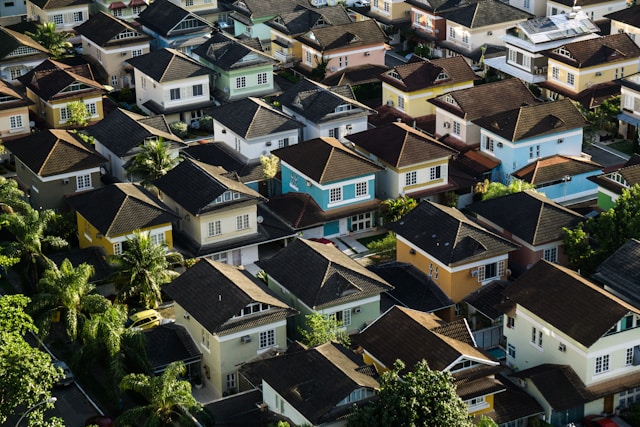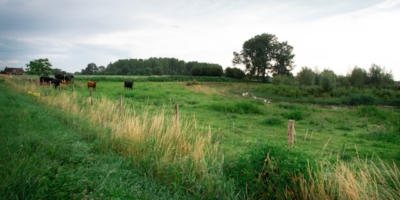Check out the latest news on laws and regulations.

Is Now a Good Time to Buy Real Estate in Argentina?
Since the assumption of Javier Milei as President of the Argentine Republic in December 2023, various changes in the normative landscape have renewed foreign interest in investing in Argentine real estate. This article looks at two specific changes. The first is the government’s repeal of the Rural Land Law, which, since the early years of the Cristina Fernandez de Kirchner administration, restricted foreign ownership of Argentina’s highly coveted and fertile land. The second looks toward Executive Order 70/2023, which has changed the rules of commercial and residential leases.
The article seeks to provide clarity on the rules—not give investment advice. Comment below and let us know your opinion on buying real estate in Argentina.
The Rural Land Law
We discussed this before [https://wsclegal.com/executive-order-70-23-rural-land-law/] but ICYMI here is a quick refresher.
Enacted in December 2011, Law No. 26,737 (the Protection of National Dominion over Ownership, Possession, or Tenancy of Rural Land Act) regulated and restricted foreign ownership of rural land. Key provisions included:
- Limits on Foreign Ownership: No more than 15% of rural land in the entire nation could owned or possessed by foreign persons, including legal entities owned or controlled by foreign persons.
- Nationality Quotas: Of the 15% nationwide, no more than 30% could be of the same nationality.
- Limits on Landholding: The Rural Land Law identified certain geographic “Core Zones” (areas like the Pampa Húmeda that are critical to food supply). In these Core Zones, no individual foreign person could own more than 1,000 hectares.
- Border and Water Resource Restrictions: No foreign person could own or possess coastal lands, property located along a national border, or property adjacent to or above a large water body.
Over the years, the Rural Land Law underwent several changes, tending to be more restrictive under some governments and less restrictive under others, depending on their outlook toward foreign direct investment. Nevertheless, for over 12 years the law discouraged foreign investment in rural Argentina.
Repeal of the Rural Land Law
Promptly upon taking office, President Milei issued Executive Order 70/2023. The Order repealed or modified more than 300 laws, rules, and regulations to deregulate the economy. Among its many effects, the Order repealed the Rural Land Law and its restrictions on foreign acquisition and ownership of rural land as of December 29, 2023.
Congressional Survival
Executive Order 70 was a controversial attempt to radically change prior economic policy without congressional approval. While past administrations have successfully implemented policy changes through use of the executive order, “ruling by fiat” is vulnerable to both congressional and judicial checks on power. After months of deft politicking, Executive Order 70 managed to survive congressional review and eventually paved the way for President Milei’s omnibus reform package enacted in July of this year.[1] Although not included in the reform package, Congress left alone the repeal of the Rural Land Law.
Judicial Challenge and Uncertainty
The fate of the Rural Land Law in the judiciary has been less encouraging to foreign investors. Immediately upon publication of the Executive Order, a non-governmental organization organized by veterans of the Malvinas War (El Centro de Ex Combatientes Islas Malvinas La Plata or “CECIM”) filed a class action to enjoin the repeal of the Rural Land Law and to declare this provision of the Executive Order unconstitutional. The complaint further sought an injunction against all sales, transfers, or other acts taken from the date of filing (December 29, 2023) in violation of the Rural Land Law.
Court Decisions and Appellate Ruling on Rural Real Estate Regulation
In February 2024, the lower court hearing the case dismissed the action based on CECIM’s failure to prove standing (i.e., the organization’s ability to show representation of persons having a sufficient connection to and harm from the challenged order) or to show imminent or actual harm from the challenged provision. CECIM promptly appealed, arguing that “the sovereignty and territorial integrity are at risk” and that the veterans of the Malvinas War had standing to defend the interests of citizens and the defense of sovereignty.
In March 2024, a federal appellate court granted CECIM’s appeal, holding that it did have proper standing to “defend the interests of the Argentine Community and national sovereignty” and that the organization could be properly certified to represent a class. The appellate court specifically questioned the constitutionality of the Executive Order, remarking that such an order is an “exceptional” exercise of presidential power reserved for “formal emergencies.” The court concluded that these circumstances were not met by the executive order to repeal of the Rural Land Law, and that the government had failed to explain how the repeal would improve Argentine socioeconomic wellbeing or otherwise justify the circumvention of Congress.
The appellate ruling ordered the class action to proceed and declared unconstitutional the executive’s repeal of the Rural Land Law. It did not, however, order the unwinding of any legal acts taken in reliance on the Executive Order. The government appealed the appellate court ruling and the matter is now pending with the Supreme Court. Until the Supreme Court rules on the constitutionality of the government’s executive action, the repeal of the Rural Land Law is valid and the Rural Land Law restrictions are not in effect.
Uncertainty for Foreign Real Estate Investors
Nonetheless, the pending outcome of the appeal to the Supreme Court leaves prospective investors and their advisers with uncertainty. How long this uncertainty will persist is unclear. While a Supreme Court appeal often takes two or more years to hear, we expect this appeal to be resolved during Q1 of 2025. We will, of course, report to you on that ruling.
For the time being, foreign investment in rural land that conflicts with the Rural Land Law poses significant risk until the Supreme Court resolves the appeal and the constitutionality of the repeal. Until then, the sale could later be declared void or otherwise affected.
So, what about urban property?
Urban Residential and Commercial Leases
First, as you may have guessed, the Rural Land Law does apply to urban real estate. A foreign investor is free to buy commercial and residential real estate outside the Core Zones and borderlands. Second, the changes to the law apply only to leases signed after the effective date of the Executive Order (i.e., December 29, 2023). And, unlike the repeal of the Rural Land Law, the Executive Order changing the laws on urban leases have not been challenged.
The Executive Order removes several statutory terms of a lease, allowing the parties much greater freedom to negotiate terms and conditions of a lease. These terms include
- Duration: Temporary rentals can be for terms based on local custom and practice. A conventional lease continues to be two years (residential) and three years (commercial).
- Currency: The parties are free to specify a foreign currency for both rent and security deposit. The landlord can insist on payment in the lease currency (as opposed to the prior law that allowed the tenant to pay the equivalent in local currency at the official exchange rate).
- Rent Adjustment: The landlord and tenant are free to agree on adjustments and may include the previously taboo use of an index (e.g., consumer prices) to adjust the rent periodically.
- Early Termination: The landlord now enjoys greater power to terminate a lease due to a lack of care exercised by the tenant or for failure to pay rent on two consecutive occasions. The tenant may still break the lease after six months but must pay 10% of the remaining rent payable under lease as a penalty.
- Improvements: The Executive Order voids certain statutes that required landlords to pay for certain “necessary” improvements and those entitling the tenant to set off the cost of such improvements from rent.
Invest or Not to Invest?
An investment decision is not driven solely by legal matters. Moreover, as long-term participants in the Argentine economy can attest, there is almost always a legal pathway to achieve a business objective. The issue, of course, is whether the price and the potential return justify the risk or the hassle. The pending constitutional litigation of the Rural Land Law urges a wait-and-see approach to a rural land investment. The changes to the rules governing leases, however, favor investment in both commercial and residential properties.
Past government intervention in commercial and residential real estate markets has often led to scarcity and higher prices. Developers and landlords became hesitant to risk capital (acquisition prices are priced in US dollars) only to be stuck with meager returns in a continually devalued currency. The Executive Order’s effects on the rental market have been notable and, with the government’s tax amnesty program aimed at onshoring capital, the hope is that construction and real estate development will resume their roles as a favored store of value for Argentine savings.[2]
Footnotes
[1] Law No. 27,742 (La Ley de Bases y Puntos de Partida para la Libertad de los Argentinos).
[2] Already, since the publication of the Executive Order, the supply of residential units for the Buenos Aires rental market has increased 150% year-over-year. https://www.reporteinmobiliario.com/article5491-la-oferta-de-alquileres-crecio-mas-del-150-por-ciento-interanual.
More information
If you would like to discuss this matter with the attorneys at Wiener Soto Caparros, please do not hesitate to contact our authors Laurence Wiener (lwiener@wsclegal.com) and Matias Wilkinson (mwilkinson@wsclegal.com or via LinkedIn at https://www.linkedin.com/in/matias-wilkinson-08478813a/).
Disclaimer
This article is based on publicly available information and is for informational purposes only. It is not intended to provide legal advice or an exhaustive analysis of the issues it mentions.





